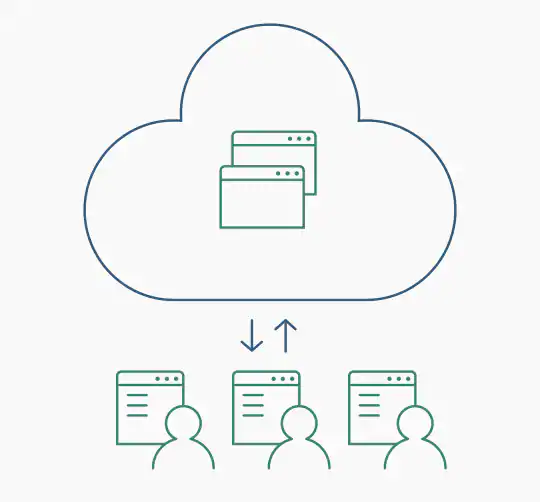Cloud Computing can be described as the practice of using a network of remote servers hosted on the internet to store, manage, process data, rather than on a local server or personal computer. The meaning behind that can be data that you save to a larger server that can be stored to open later. If your computer breaks, the data you store in the cloud will be there is your computer stops working. Cloud computing enables people to self service their applications. This can eliminate the IT administrators so that the person in charge or administrator is the person using the cloud computing service. Cloud Computing was first thought up in the 1960ís. The first cloud network was invented by JCR Liklider. The creator wanted people to be able to access data and other programs through a network. This network was able to bring geographically dispersed computers bonded together to share data and programs.
Pros and ConsWith all parts of IT practices, there are pros and Cons. I will focus on three pros and three cons. To start off, letís give the pros. Three main pros will be listed first. One pro is there is improved Disaster recovery. That consists of moving your business data to the cloud can make disaster recovery i.e., retrieving data in the event of experiencing a hardware compromise. This is used to make it easier and less expensive to recover data. You can set the system to automatically backup your data to ensure your data is secure. Another pro is Increased Collaboration and Flexibility. Using the cloud, employees can work together with their boss and other co-workers to sync documents to the cloud to view each otherís documents. The cloud can also allow workers to access this data from anywhere. The third pro is Environmentally Friendly. Cloud Computing decreases a businessí carbon footprint by reducing energy consumption and carbon emissions by 30%.
Now onto the cons. Internet Connectivity can be an issue. The cloud computing does require consistent connection to the internet to effectively use Cloud Computing. The next con with Cloud Computing is the Ongoing costs. Although Cloud Computing is inexpensive, there are costs hat come into play. Buying the server to use, and most importantly, ongoing IT maintenance. One final use with Cloud Computing is Security. When storing data, it is upon your business to trust your data is being storing securely. The data you store is with a third party and the ability to trust the source is upon you, so if the company or app you store the data with, needs to be credible. The business needs to determine what is credible or not. Overall, Cloud computing in the long run is great to use for a business. Being able to store data can greatly improve how you run a business and or keeping data stored safely in case of a disaster. Cloud Computing is worth it.

